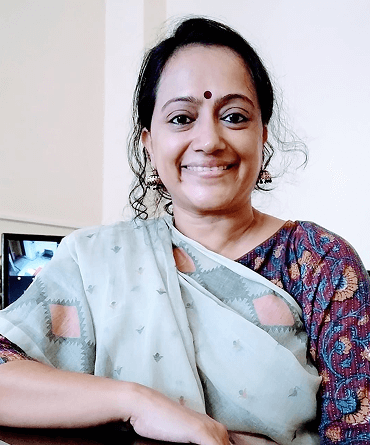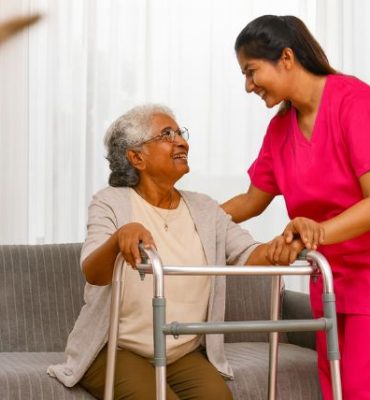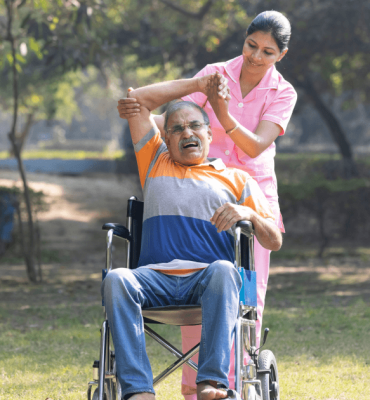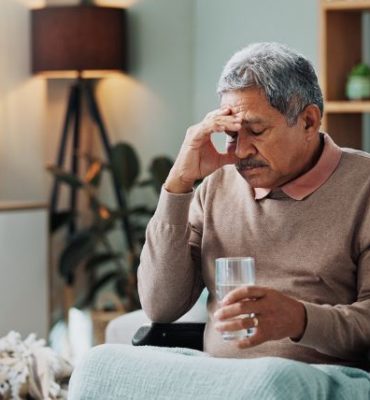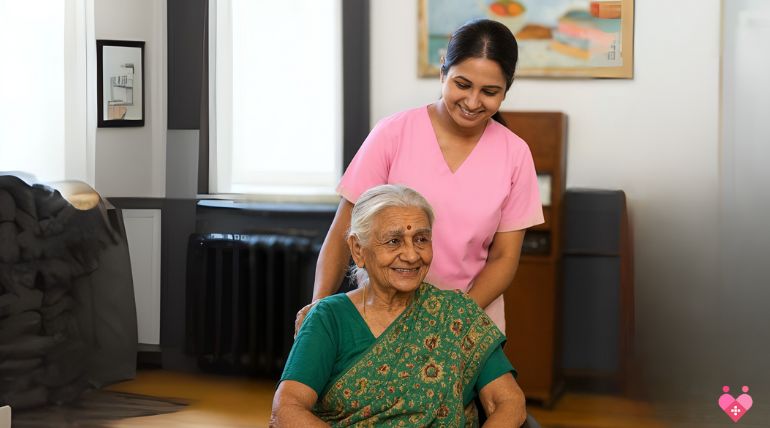
Kolkata isn’t just another city on the map. It’s a character in itself. It’s a place where a five-minute errand becomes a half-hour adda because you bumped into a neighbor. It’s where Durga Pujo isn’t just a festival but a season, where para pandals glow brighter than fairy tales, and where every Sunday morning smells like fresh fish from the local bazaar. Trams still rattle their way down College Street, tea stalls spill over with conversations about politics, cricket, and Tagore, and somehow, in all of this, our elders remain the quiet backbone.
They’re the ones who’ve watched this city grow and change, who still measure time in “before Metro” and “after Metro,” who remember the days when hand-written letters took weeks to arrive, and now squint at their smartphones as if they were magic. They’re the keepers of recipes, songs, and family histories, and even if they sometimes seem grumpy, the truth is simple: without them, Kolkata wouldn’t feel like home.
But here’s the shift that stares us in the face…families don’t look the way they once did. Thirty years ago, it was rare to find an elder living alone. Grandparents lived under the same roof as children and grandchildren. But today, families are smaller. Nuclear households have replaced joint families. Work schedules are tighter, and many children live in other cities or even halfway across the world. The para adda has shrunk to the WhatsApp group chat, and Swiggy Instamart often replaces the Sunday fish market. Pujo, while still grand, doesn’t always carry the same sense of warmth and togetherness.
And this shift hits our elders the hardest. For them, it’s not just about missing company. It’s about losing a rhythm of life they’ve always known. What was once noisy, crowded, and reassuringly chaotic is now often quiet, solitary, and isolating, which is why elder care in Kolkata is no longer just about attending to health needs. It’s about recreating the warmth of connection, the safety of community, and the dignity of being truly seen.
The Challenges of Elder Care in Today’s Kolkata
Caring for elders in Kolkata is layered, not just because of their age or health conditions. It’s about balancing the invisible weight of expectations, emotions, and practical challenges that often collide.
One of the biggest challenges is mental health. For many elders, life shrinks as they grow older. Friends pass away or move away, children get busier, and social circles become smaller. What used to be lively afternoons of adda in the courtyard are now long stretches of silence. This loneliness is not just “feeling a little sad.” It is a serious health risk. Studies show that chronic loneliness can lead to depression, faster cognitive decline, and even increase the risk of heart disease and many other age-related elderly health problems. But here’s the thing in our culture, elders rarely admit they are lonely. They will say they are “fine,” even when their eyes speak the truth. There is a stigma in asking for emotional help, and this silence makes things worse.
Then there is the challenge of dependence versus dignity. Elders may need help with mobility, meals, or medication. But many struggle to accept that help. For someone who once managed a household, guided a family, and made all the decisions, asking for support can feel humiliating. It takes a lot of patience and sensitivity from caregivers to remind them that receiving help doesn’t make them weak. It simply makes life safer and easier.
We also need to talk about the caregivers’ side of the story. Whether it’s children, grandchildren, or hired support, caregiving is exhausting. Balancing office work, housework, and elder care often feels like juggling knives. There is constant guilt: “Am I doing enough? Am I being patient enough?” Burnout is real. Many family caregivers in Kolkata admit to feeling torn between their love for their elders and the pressure of their own lives. It is not a lack of love, but a shortage of time, energy, and support.
This is why elder care services in Kolkata have become so important. They don’t just support elders; they support families. They help carry the weight so that love doesn’t collapse under exhaustion.
Elder Care Services That Make a Real Difference
Now, let’s talk about the elder care services in Kolkata that are accessible to seniors easily, affordably, and with no hassles. These services make life smoother for both elders and families. These are not luxuries; they are practical supports that step in where families often struggle.
Here, we have a few necessary, essential, and available elder care services in Kolkata for their better life and well-being.
1. Wellness Attendants
Attendants are the heart of elder care. They are the ones who show up every morning, who sit beside elders through the day, and who quietly take on the tasks that families often feel overwhelmed by.
- Non-critical attendants help with everyday routines, such as bathing, grooming, and oral hygiene, preparing meals with the required nutrition for the elderly, feeding, and medication reminders. They also provide companionship, which is just as important as medical help.
- Critical attendants are trained nurses (GNM/ANM or GDA) who manage more complex medical needs, such as injections, IV lines, oxygen therapy, tracheostomy care, wound dressing, post-surgery recovery, and even emergency CPR. They step in during fragile moments when a trained hand can make all the difference.
What makes wellness attendants special is not just the work they do but the way they do it. Over time, they become part of the family rhythm. They are the trusted, familiar faces who make elders feel safe without making them feel dependent.
2. Wellness Managers
If attendants are the doers, wellness managers are the organizers. They act like care coordinators, ensuring nothing slips through the cracks.
They keep track of medicines, doctor appointments, physiotherapy schedules, and follow-ups. For families, especially those juggling busy lives or living abroad, wellness managers are the assurance that elders aren’t missing out on critical care. Think of them as the silent planners in the background who ensure everything runs smoothly.
3. Doctor-on-Call
For an elder, a trip to the clinic is often more stressful than the illness itself. The traffic, the waiting rooms, the physical strain of travel…it all adds up. With doctor-on-call services, medical consultations happen at home. Whether it’s a fever, blood pressure fluctuation, or a routine check-up, elders can be treated in the comfort of their own living room. It’s simple, stress-free, and far more dignified.
4. Ambulance 24×7
Emergencies have no timetable. A sudden fall at midnight, chest pain in the middle of Pujo festivities — families need quick action, not panic. Having access to a 24×7 ambulance service means elders can be taken to the hospital immediately, safely, and with medical support on the way. That readiness itself gives families peace of mind.
5. Medical Equipment Rentals
Not every family needs a hospital bed or oxygen cylinder forever. Often, equipment is only needed for a few weeks after surgery or during recovery. Renting medical equipment is a practical solution. It saves money, avoids clutter, and still ensures elders get the right support at the right time. From walkers and wheelchairs to monitors and suction machines, renting medical equipment can make care accessible without heavy expenses.
6. Medicine Delivery
Running out of essential medicine is one of the most common fears in elder care. A pharmacy might be closed, or the medicine might not be available nearby. With doorstep medicine delivery, elders don’t have to miss a single dose, and families don’t have to rush around late at night. It’s a small service that makes a huge difference in safety and routine.
7. Training Programs
Caregiving isn’t always instinctive — it’s a skill. Training programs empower family members and ayahs with knowledge on providing safe, effective care. From learning how to move a bedridden elder without hurting them to knowing how to respond in an emergency, training brings confidence. It’s a way of saying, “We love you, and we’re going to do this right.”
Family Emotions and the Questions We Don’t Always Say Out Loud
Elder care isn’t just about elders. It reshapes family life, too. Children, grandchildren, and even relatives abroad feel the pull of responsibility. And with it comes love, guilt, confusion, and a million unspoken questions.
Families often carry a quiet guilt: “Am I doing enough?” Working professionals in Kolkata juggle office calls, traffic, and home chores while still worrying if Baba has taken his insulin. NRIs feel helpless, checking WhatsApp at odd hours, wondering if their parents are eating properly. Even those living under the same roof often feel torn—caring deeply but also craving a break.
Here are some of the questions families whisper, sometimes only to themselves:
Yes, almost always. They’ll say, “I don’t need help” while clearly needing it. Patience and respect work better than force. When care is introduced gently, as companionship rather than control, most elders slowly accept it.
Families often find that acceptance comes more easily when care is framed around enjoyable activities for senior citizens, like listening to music together or helping with light gardening.
No. Love is still yours. Caregivers handle the routines and emergencies so you can simply be a son, daughter, or grandchild again. It’s not less love. It’s sustainable love.
That’s the reality for many families. Many organizations are now offering elder care services in Kolkata, making it possible to arrange care, track updates, and stay connected no matter where you are. This eases the constant worry that distance creates.
Sometimes. Elders can feel uneasy about needing help. However, when care is offered with dignity and warmth, they usually see caregivers as allies rather than intruders.
The truth is simple: families want to give their elders everything, but can’t do it alone. Elder care services are not a sign of neglect but a way of balancing love with life’s realities.
A Glimpse at AgeWell’s Approach to Elder Care in Kolkata
What sets AgeWell apart is how they make elder care feel less like a service and more like a support system that families can trust. They start by offering families an Annual Care Plan. It’s not binding, but incredibly useful because it maps out what kind of support an elder might need across the year. Think of it as a gentle roadmap designed to match both health conditions and family budgets. For many families, this clarity alone removes a huge mental load.
On the ground, AgeWell provides everything from wellness attendants to trained nurses, ensuring both non-critical and critical care needs are covered at home. It’s flexible, so families can adjust the support as elders’ needs change over time.
AgeWell also invests in training for family caregivers and ayahs. This is rare, but powerful. Families who want to stay directly involved learn practical skills like safe mobility techniques, administering medicines, or handling emergencies. Ayahs, who are often trusted but untrained, also receive guidance to provide dignified, safe support. In a city like Kolkata, where pride and independence matter deeply to elders, this training ensures that care feels less clinical and more compassionate.
And it’s not just about ticking boxes of services. AgeWell builds its work on values: compassion, dignity, integrity, and the idea of community. That means elders are never treated as “patients” to be managed but as people who deserve respect, warmth, and a life that still feels meaningful. Knowing that their parents or grandparents aren’t just being looked after but truly cared for makes all the difference for families.
At the End of the Day, It’s About Love
When you strip away the lists, schedules, and medical jargon, elder care in Kolkata comes down to something very simple: love. The kind of love that once woke you up for school with hot luchis, stayed up through your exam nights, and cheered when you scored even a small victory.
Elder care isn’t about handing over responsibility. It’s about creating the space for families to love without being exhausted and for elders to live with dignity rather than dependence. Services, attendants, managers, doctors—they are not replacements for family but reinforcements.
Because in the end, caring for elders is not about helping them live longer. It’s about assisting them to live better with comfort, pride, and the warmth of being truly seen. And isn’t that what we all want for the people who once gave us everything?
